 Generally, the 501st Legion steers clear of politics. We're not supposed to appear with political candidates or generally deviate from a charitable + costume-styled mission, but there's points where we simply can't avoid it.
Generally, the 501st Legion steers clear of politics. We're not supposed to appear with political candidates or generally deviate from a charitable + costume-styled mission, but there's points where we simply can't avoid it.
The New England Garrison made an appearance in Senator Tom Coburn's annual Waste Book, a publication that points out what he considers wasteful spending. The document can be found here, and on page 84, at #52, there's an entry titled 'Return of the Jedi - (MA) $365, you'll see members of the New England Garrison and Alderaan Base, from when we trooped at the Abington Public Library's Star Wars Day. Our folks had a good time, and apparently the library's patrons did as well.
The document goes on to say the following:
The Star Wars Day event, held at the Abington Public Library in Massachusetts, was paid for with $365 in federal funds, part of an $11,700 grant provided by the federal Institute of Museum and Library Services.
The Star Wars franchise has grossed over $4.5 billion over the past 35 years, so taxpayers may wonder why the government is subsidizing fan events for one of the most popular and successful movie series in the universe.
It's enough to make my blood boil.
What immediately strikes me is just how misleading this entry is, or at the very least, the second paragraph. While it's true that the films have grossed more than 4.5 billion listed, there's no direct connection between Lucasfilm Limited and the library, or us, for that matter. We're an organization that LFL works with, but we're not employees. Moreover, this works to imply that the $365 (which compared to the national budget / debt is a microscopic part) that was paid went to LFL or us to pad the bottom line. You want to know what the money was probably used for?
The librarian on staff who's position is funded through grants. At $15 an hour, that's 24 hours, less than a full work week, and far less time than what was probably required to put together the event.
I didn't work with this particular event, but I did work with another library event here in Vermont, where we worked to support the Star Wars club at the Brownell Library in Essex Junction. The grant that supplied a librarian to run the club had actually been cut, and we were there to help support that club. In all, we raised $290, which helped keep the librarian there for the rest of the year.
What bothers me the most is how absolutely clueless this entry appears, given the problems that the nation face, and it's not this enormous debt, and it's not that it's completely off mark, but that whoever placed the entry had absolutely no idea what something like this does. It's not a miniature Celebration, where fanboys can bask in the glory of Lucas's franchise: it's designed to get kids into the public library, where they can see, touch, and interact with all of the resources that are at hand for free to the general public. Libraries are the civilized world's most crucial institutions, not just for the books that they hold, but for their center in the community, for the expertise that their staffs provide, and for the multiplier effect that they can have on one's education. This sort of investment from the federal government is something that can do what is most important: assist in the education and self-betterment of our peers. Now, as the country is slowly inching along in its recovery, this is the type of institution that is evermore valuable, and evermore threatened. The Library Foundation of Hennepin County reported that in the 2002 recession, library circulation jumped 11.3%.
Looking long-term, we consistently hear arguments that the American child is falling behind relatively to their peers around the world, with the public school system often coming under fire for a poor education that public school children seem to be receiving. Those arguments aside for the moment, it's a tiny snapshot of the resources that schools and libraries are pushed to go to. Without additional funding that host communities can't provide, these important institutions simply cannot exist, and with them, any hope for sustained, meaningful economic recovery.
The Star Wars day that's come under fire here is inconsequential, but it's an important insight into how divided we are from the situation on the ground. This congressional member has likely never visited the library, or seen just how federal dollars are used, and what the direct impact on their constituents are. At the same time, the word 'Military' shows up three times. 'Army', 14 times, but most of those are in the footnotes. 'Navy'? 23 times, with a couple of good points about military readiness, but also attacking a kid's program about space and Mars. 'Marines' doesn't show up at all, all institutions that eat enormous quantities of money. I will note, I'm not against military spending, but somewhere in the $1.030–$1.415 trillion, $11,000 was lost in someone's couch cushions. I would argue, as Fermilab physicist Robert Wilson did in 1969, when questioned about the practical security value of a collider: "If only has to do with the respect with which we regard one another, the dignity of men, our love of culture... it has to do with , as we good painters, sculptors, great poets? I mean all the things we really venerate in our country and are patriotic about ... it has nothing to do directly with defending our country, except to make it worth defending. " (Rocket Men: The epic story of the first men on the moon, Craig Nelson, p.x) I don't mean to imply that there's an argument being made here that the same money should be put strictly to defense, but I don't believe that this country should be on a path of bare bones financing, at the expense of the American public.
The elimination of this single event at this single library would be inconsequential in the greater scheme of things. But when you eliminate (or suggest to eliminate one), here, and another there, soon, there's nothing left.
Again, I didn't attend this event, but at the one that I did attend, I was greeted behind my helmet by over a hundred patrons: kids, parents and fans, all excited and all of them in the library. I saw a lot of children with books. Reading is an incredibly important skill for the modern world, and everywhere I look, I see evidence that this is something that's far less valued as a whole, when it should be the most important thing that a child learns to love. Reading opens the doors to worlds previously closed to us, and allows for the creation of an innovative, creative generation that will spur this country to great heights, or down to dangerous depths from which we have little hope of escaping in the same amount of time.
It bothers me that the reality on the ground differs so much from the story that's been concocted by a disinterested party, hellbent on their mission (which certainly has its merits) to the expense of all other concerns that come up along the way. It's the programs like this, that build the country, little by little, into what makes it a great nation.
I for one am proud of what the 501st has done to support such events. This summer, we were inundated with over a hundred requests from libraries across New England for similar events, and I fervently hope that we will have twice as many next year.
EDIT, 10/23 3:20PM: NPR has a great post up on the reading habits of younger generations, and surprisingly, it's not just ebooks and internet things, it's regular, dead tree books and libraries. Read it here.


 Sometimes, stories find you when you least expect them. I began this column thinking that I would find Tolkien's experiences in war as an almost superficial influence on his later stories, only to find the complete opposite. Tolkien went to war and underwent pure horror. He witnessed a terrible war from the front lines, and found most of his friends dead when he left. It's little wonder that he felt that his creative spirit was dampened by it.
Sometimes, stories find you when you least expect them. I began this column thinking that I would find Tolkien's experiences in war as an almost superficial influence on his later stories, only to find the complete opposite. Tolkien went to war and underwent pure horror. He witnessed a terrible war from the front lines, and found most of his friends dead when he left. It's little wonder that he felt that his creative spirit was dampened by it. With October's Horror duo over with, I decided that it was time to shift gears again in preparation for the really big fantasy event of the year: The Hobbit, and thus focus on some of the background on Fantasy literature, which I haven't really focused on thus far. Like Science Fiction, context for the development of Tolkien's works relies on an earlier look at what came before, and the notable author that I became interested in was George MacDonald, who really jump started the Fantasy genre by creating a number of modern fairy tales that inspired many fantasy authors that came before him. He's not a household name like Mary Shelley, Jules Verne or H.G. Wells, but he was no less influential in his works, which went on to inspire authors such as J.R.R. Tolkien and C.S. Lewis.
With October's Horror duo over with, I decided that it was time to shift gears again in preparation for the really big fantasy event of the year: The Hobbit, and thus focus on some of the background on Fantasy literature, which I haven't really focused on thus far. Like Science Fiction, context for the development of Tolkien's works relies on an earlier look at what came before, and the notable author that I became interested in was George MacDonald, who really jump started the Fantasy genre by creating a number of modern fairy tales that inspired many fantasy authors that came before him. He's not a household name like Mary Shelley, Jules Verne or H.G. Wells, but he was no less influential in his works, which went on to inspire authors such as J.R.R. Tolkien and C.S. Lewis.
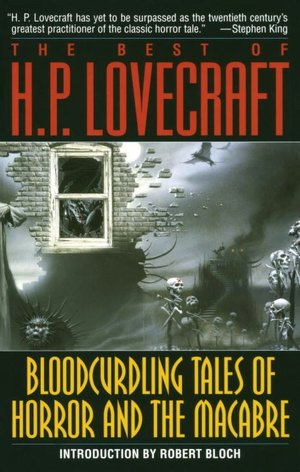 With October a traditionally - horror themed month capped with Halloween, it seemed appropriate to follow up Bram Stoker and Dracula with another notable horror author: H.P. Lovecraft. Hugely influential in the horror genre, Lovecraft is an author that I got into while in college, with a course on Gothic Literature. I've found Lovecraft's stories to be delightfully macabre, and living in Vermont, I can identify with his love of the sheer age of the location, and can see just why this corner of the country is so suited for horror fiction.
With October a traditionally - horror themed month capped with Halloween, it seemed appropriate to follow up Bram Stoker and Dracula with another notable horror author: H.P. Lovecraft. Hugely influential in the horror genre, Lovecraft is an author that I got into while in college, with a course on Gothic Literature. I've found Lovecraft's stories to be delightfully macabre, and living in Vermont, I can identify with his love of the sheer age of the location, and can see just why this corner of the country is so suited for horror fiction.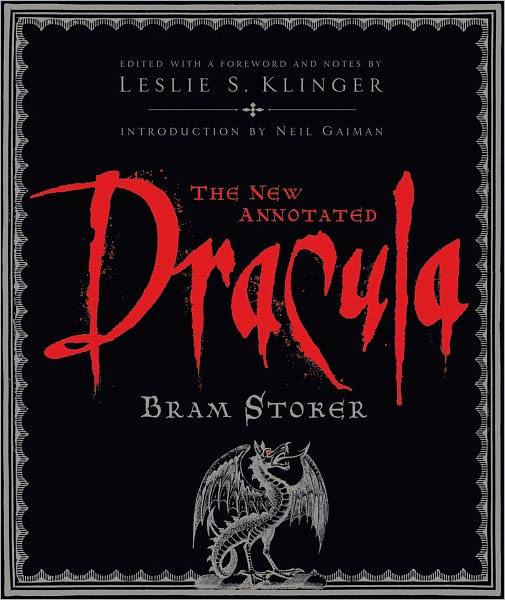
 I had a gap in the schedule, and it seemed like a good time to start getting ready for October. Somewhere, I decided that I wanted to take a look at a broad swath of a genre, and because I was working on the pieces for October (Dracula), it seemed as good a time as any to see where Dracula fits into the larger picture. Turning to social media, I asked people what they thought were some of the more important vampire novels, coming up with an impressive list that had to be really pared down. There's not a lot of surprises on it, but I did find a couple of interesting points: many people believe that Dracula was *the* original Vampire novel, when in fact it's predated by a number of others that in turn influenced Dracula. Stoker's novel proves to be a tipping point, and there's quite a bit of variety after the publication of that book.
I had a gap in the schedule, and it seemed like a good time to start getting ready for October. Somewhere, I decided that I wanted to take a look at a broad swath of a genre, and because I was working on the pieces for October (Dracula), it seemed as good a time as any to see where Dracula fits into the larger picture. Turning to social media, I asked people what they thought were some of the more important vampire novels, coming up with an impressive list that had to be really pared down. There's not a lot of surprises on it, but I did find a couple of interesting points: many people believe that Dracula was *the* original Vampire novel, when in fact it's predated by a number of others that in turn influenced Dracula. Stoker's novel proves to be a tipping point, and there's quite a bit of variety after the publication of that book.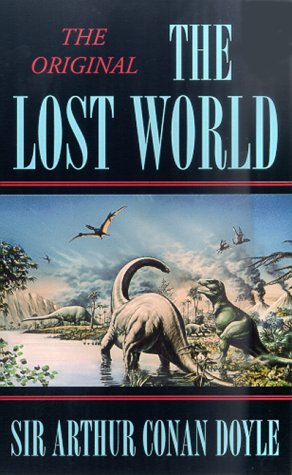 My latest post for Kirkus Reviews is now up online. Originally, I'd planned on finishing out the Science Romances with
My latest post for Kirkus Reviews is now up online. Originally, I'd planned on finishing out the Science Romances with  My author copies have arrived, so I know for sure that this exists: in the November 2012 issue of
My author copies have arrived, so I know for sure that this exists: in the November 2012 issue of 
 Over on Kirkus Reviews, I have a bit of a roundup post that looks back over the posts that I've written, looking at the foundational stories of the genre, and how they all fit together in the bigger picture. You can read it over
Over on Kirkus Reviews, I have a bit of a roundup post that looks back over the posts that I've written, looking at the foundational stories of the genre, and how they all fit together in the bigger picture. You can read it over 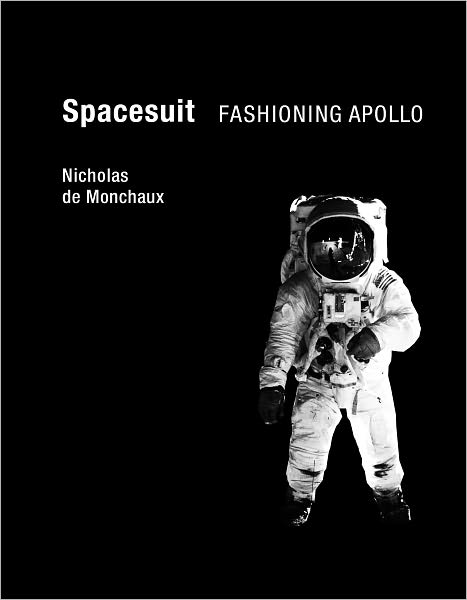 Nicholas de Monchaux's Spacesuit: Fashioning Apollo is a stunning history of the development of NASA's A7L EVA Space Suit. Used on the Apollo and Skylab missions during the heights of the Space Race, the space suit is quite possibly one of the more recognizable images of mankind’s existence in space. In this extraordinary book, he outlines what we know in abstract form: that the lunar landings were an event that was the cumulative efforts of thousands, if not millions of people across a huge number of industries. The real triumph of Apollo isn't the steps that made history on the moon: it's all of the steps in the decades before that got them there. Laid out in 21 chapters (the same number of layers that went into a space suit), and covered in a latex dust jacket, de Monchaux methodically drills into the development of a garment that would protect an astronaut in the extreme, inhospitable environment of space. In doing so, he covers far more than just the evolution of the spacesuit: he provides an in depth history of how we went to space and the impact that it had, touching on social, military and political influences.
Nicholas de Monchaux's Spacesuit: Fashioning Apollo is a stunning history of the development of NASA's A7L EVA Space Suit. Used on the Apollo and Skylab missions during the heights of the Space Race, the space suit is quite possibly one of the more recognizable images of mankind’s existence in space. In this extraordinary book, he outlines what we know in abstract form: that the lunar landings were an event that was the cumulative efforts of thousands, if not millions of people across a huge number of industries. The real triumph of Apollo isn't the steps that made history on the moon: it's all of the steps in the decades before that got them there. Laid out in 21 chapters (the same number of layers that went into a space suit), and covered in a latex dust jacket, de Monchaux methodically drills into the development of a garment that would protect an astronaut in the extreme, inhospitable environment of space. In doing so, he covers far more than just the evolution of the spacesuit: he provides an in depth history of how we went to space and the impact that it had, touching on social, military and political influences.

 Over on the Kirkus Reviews blog, I've turned my attention to one of my absolute favorite science fiction novels, The War of the Worlds, by H.G. Wells. One of the absolute greatest works of science fiction, it's a story that I've continually learned more about ever since I first read it so many years ago. You can read
Over on the Kirkus Reviews blog, I've turned my attention to one of my absolute favorite science fiction novels, The War of the Worlds, by H.G. Wells. One of the absolute greatest works of science fiction, it's a story that I've continually learned more about ever since I first read it so many years ago. You can read 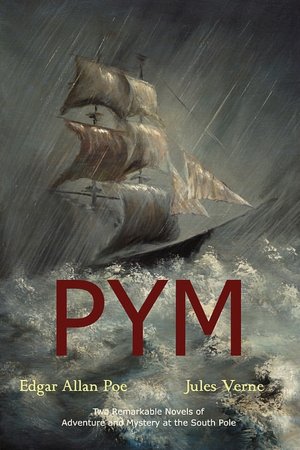 My latest column for Kirkus reviews has just been posted! While doing some reading on Edgar Allan Poe, I came across an interesting point: Poe only wrote a single novel, The Narrative of Arthur Gordon Pym of Nantucket, which was later picked up upon by legendary science fiction author, Jules Verne in An Antarctic Mystery. In a large way, it was one of the first works of fan fiction!
My latest column for Kirkus reviews has just been posted! While doing some reading on Edgar Allan Poe, I came across an interesting point: Poe only wrote a single novel, The Narrative of Arthur Gordon Pym of Nantucket, which was later picked up upon by legendary science fiction author, Jules Verne in An Antarctic Mystery. In a large way, it was one of the first works of fan fiction! 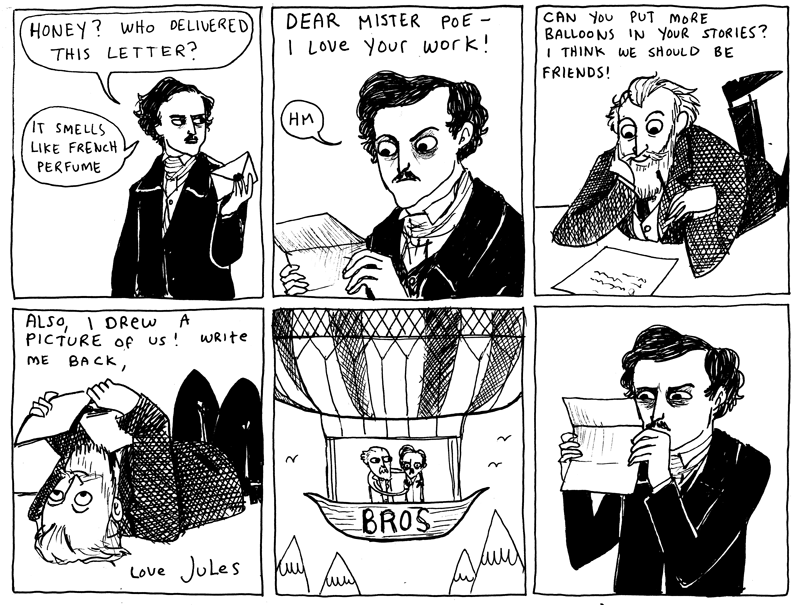



 I've sold a new article to the Norwich Record, titled Out of the Ashes: How an Irish Episcopal Priest Saved Norwich University. This was one of the projects that I was working on last fall, and shortly after the start of the New Year, I submitted my final draft. The research phase was interesting: going through archives and piecing together a rather interesting and diverse man that was a central, but forgotten figure in Norwich University and local Vermont history.
I've sold a new article to the Norwich Record, titled Out of the Ashes: How an Irish Episcopal Priest Saved Norwich University. This was one of the projects that I was working on last fall, and shortly after the start of the New Year, I submitted my final draft. The research phase was interesting: going through archives and piecing together a rather interesting and diverse man that was a central, but forgotten figure in Norwich University and local Vermont history. During a campaign stop in Florida in advance of the next Republican Primary, former speaker of the house Newt Gingrich
During a campaign stop in Florida in advance of the next Republican Primary, former speaker of the house Newt Gingrich